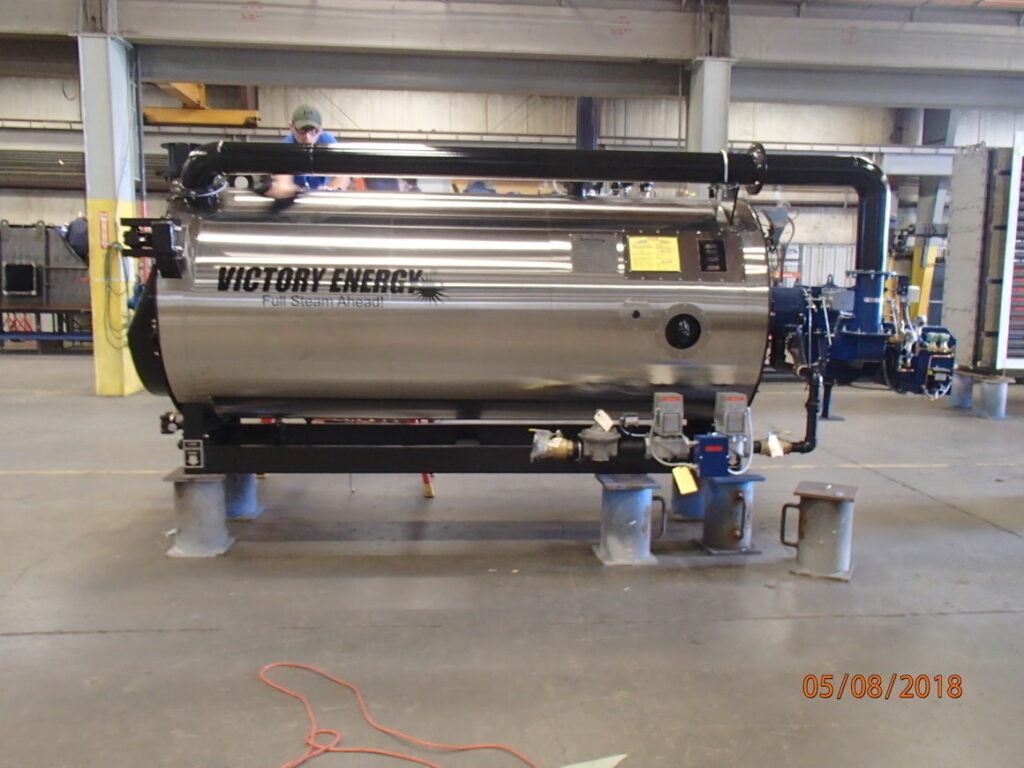
Boosting Efficiency and Reducing Emissions: The Evolution of Boiler Burners
In the world of industrial applications, boilers play a vital role in providing heat and power generation for a variety of processes. Whether it’s in manufacturing plants, power stations, or even residential heating systems, boilers are the workhorses that keep the wheels of industry turning. To ensure optimal performance and environmental sustainability, the efficiency and emissions of boilers have become crucial considerations. This is where boiler burners come into play, serving as the heart of these systems.
Boiler burners are essential components responsible for igniting and controlling the combustion process within a boiler. Their role is to mix fuel (such as natural gas, oil, or biomass) with air in precise proportions and deliver it to the combustion chamber. By finely tuning the fuel-air mixture, boiler burners can maximize combustion efficiency while minimizing harmful emissions.
Efficiency
Efficiency is a key factor in any industrial operation, and boilers are no exception. The efficiency of a boiler refers to the amount of fuel energy converted into useful heat energy. Inefficient boilers not only waste precious fuel resources but also contribute to higher operational costs. By incorporating advanced burner technology, modern boilers can achieve remarkable levels of efficiency, reducing both fuel consumption and environmental impact.
Industrial Applications
Boiler burners find their primary application in the industrial sector, where large-scale operations demand a continuous and reliable heat source. Industries such as petrochemicals, food processing, paper manufacturing, and power generation rely heavily on boilers to meet their process heating and power needs. Efficient and reliable boiler burners are essential to ensure smooth operations, increase productivity, and minimize downtime.
Mobile Applications
While industrial applications dominate the landscape, boiler burners are not limited to fixed installations. Mobile boiler systems, equipped with compact burners, provide flexibility and temporary heating solutions for construction sites, remote locations, and disaster relief efforts. These portable units enable quick setup, easy transportation, and on-demand heat generation, proving invaluable in various scenarios where a temporary heat source is required.
Emissions Control
The environmental impact of boilers cannot be overlooked, as they are significant contributors to greenhouse gas emissions and air pollution. In recent years, stringent regulations and a growing concern for sustainability have prompted the development of low-emission burner technologies. Advanced burner designs, such as low-NOx (nitrogen oxide) burners and ultra-low-NOx burners, significantly reduce nitrogen oxide emissions, a major air pollutant. Additionally, integration of technologies like flue gas recirculation, selective catalytic reduction, and exhaust gas scrubbers further mitigate harmful emissions, ensuring compliance with environmental standards.
Boiler burners play a crucial role in optimizing the efficiency and reducing the environmental impact of boilers. With advancements in burner technology, industrial and mobile boiler systems can achieve higher levels of efficiency, resulting in cost savings and reduced fuel consumption. Moreover, the focus on emissions control has led to the development of low-emission burner technologies, making boilers more environmentally friendly. As we strive towards a sustainable future, the evolution of boiler burners continues to shape the efficiency and environmental performance of these essential heat and power generation systems.
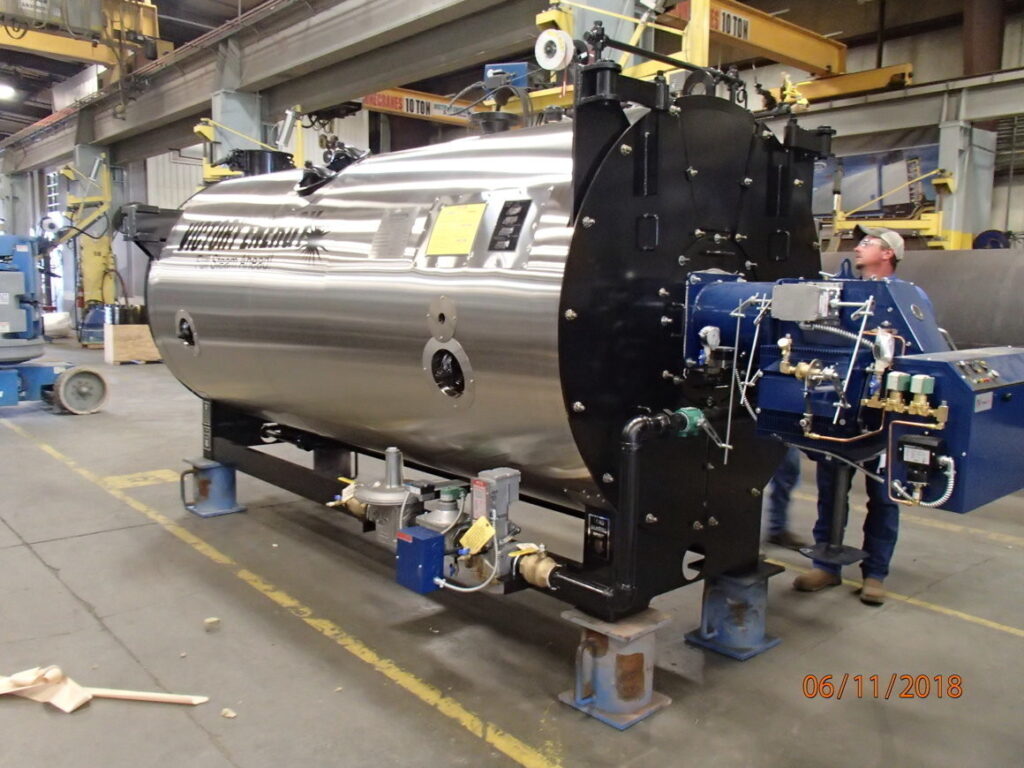
Industrial Applications and Enhanced Efficiency
In the industrial sector, where large-scale operations demand high-performance heating solutions, boilers equipped with efficient burners are indispensable. The collaboration between advanced boiler technology and innovative burner systems has revolutionized industrial processes, enhancing efficiency, productivity, and cost-effectiveness.
Efficiency in Industrial Applications
Efficiency is a paramount concern in industrial applications, as it directly impacts operational costs and profitability. Industrial boilers, powered by high-efficiency burners, can achieve remarkable fuel-to-heat conversion rates. By precisely controlling the fuel-air mixture and optimizing combustion, these systems minimize energy waste, maximizing the amount of heat produced from each unit of fuel consumed. Improved efficiency translates into reduced fuel expenses, lower carbon footprints, and increased competitiveness for industrial businesses.
- Enhanced Combustion Efficiency: High-efficiency burner systems play a pivotal role in optimizing combustion within industrial boilers. These burners are engineered to deliver a precise and controlled fuel-air mixture. By doing so, they ensure that fuel is burned as completely as possible, leaving minimal unburned residues. This enhanced combustion efficiency not only increases the heat generated per unit of fuel but also minimizes the release of harmful pollutants into the atmosphere, contributing to cleaner and more sustainable industrial processes.
- Reduced Energy Waste: Inefficient burners can lead to energy waste in the form of excess fuel consumption and heat loss. High-efficiency burners mitigate these issues by carefully regulating the combustion process. They prevent fuel from being wasted as unburned hydrocarbons or excessive emissions. Moreover, they are often equipped with advanced control systems that can adapt to varying load conditions, ensuring consistent performance even when the demand for heat fluctuates. This reduction in energy waste directly translates to cost savings for industrial operators.
- Lower Operational Costs: One of the most significant advantages of utilizing high-efficiency burners in industrial applications is the substantial reduction in operational costs. Since these burners maximize fuel-to-heat conversion rates, industrial facilities can achieve the same level of output while consuming less fuel. This translates into lower fuel expenses, which can be a significant portion of a facility’s operational budget. As a result, businesses can allocate their resources more efficiently and invest in other areas of operation, ultimately bolstering their competitiveness.
- Environmental Benefits: Beyond cost savings, the adoption of high-efficiency burner systems contributes to a greener and more environmentally responsible industrial sector. By burning fuel more efficiently and cleanly, these systems produce fewer emissions, including carbon dioxide (CO2), nitrogen oxides (NOx), and particulate matter. This reduced environmental footprint is increasingly important in a world where sustainability and environmental regulations are gaining prominence. It not only helps industrial facilities meet compliance standards but also enhances their reputation as responsible corporate citizens.
- Enhanced Competitiveness: In today’s highly competitive industrial landscape, efficiency is a key factor in maintaining and enhancing market competitiveness. Companies that invest in high-efficiency burners can position themselves as leaders in their respective industries. They can offer more cost-effective products and services while adhering to stringent environmental regulations, giving them a competitive edge. Additionally, by reducing their carbon footprint, businesses can appeal to eco-conscious consumers and partners, potentially opening up new market opportunities.
- Long-Term Sustainability: High-efficiency burner systems are not only beneficial in the short term but also contribute to the long-term sustainability of industrial operations. They prolong the lifespan of boilers by minimizing wear and tear associated with inefficient combustion. Additionally, by reducing the overall demand for fuel, these systems help mitigate the impact of fluctuating fuel prices, enhancing a company’s resilience to economic uncertainties.
High-efficiency burners are indispensable in industrial applications, as they offer a multitude of advantages ranging from cost savings and reduced environmental impact to improved competitiveness and long-term sustainability. Their ability to optimize combustion processes and minimize energy waste makes them a critical component in modern industrial facilities seeking to maximize efficiency and profitability while minimizing their ecological footprint.
Burner Technologies for Industrial Boilers
Burner technology has evolved significantly to meet the demands of industrial applications, providing reliable and efficient heat sources for a wide range of processes. High-performance burners are designed to handle the intense heat and rigorous operating conditions found in industrial settings. They feature robust construction, advanced controls, and versatile fuel compatibility to accommodate diverse industrial requirements.
Industrial boiler burners come in various configurations, such as:
- High-Pressure Burners: High-pressure burners are engineered to withstand the rigorous conditions prevalent in industrial boilers operating at elevated pressures. These burners are designed for precision, ensuring a well-controlled and stable fuel-air mixture even in demanding environments. They are commonly employed in power generation plants and industrial facilities where consistent heat output and thermal efficiency are paramount. High-pressure burners optimize combustion under these conditions, minimizing energy waste and maximizing the overall performance of the boiler system.
- Dual-Fuel Burners: Dual-fuel burners are renowned for their adaptability and versatility in industrial applications. These burners are capable of operating with different fuel sources, typically natural gas, oil, or a combination of both. This flexibility is invaluable to industrial operators facing fluctuating fuel costs and availability. Dual-fuel burners facilitate seamless transitions between fuel sources, allowing facilities to optimize their energy procurement strategies. This not only reduces operational costs but also ensures uninterrupted operations, making them a vital choice for industries with critical heating needs.
- Low-NOx Burners: The development of low-NOx (nitrogen oxides) burner technologies has been driven by environmental regulations and the growing emphasis on sustainability. These burners employ advanced combustion techniques to minimize the formation of nitrogen oxides, which are a significant contributor to air pollution. By reducing NOx emissions, industrial facilities can comply with stringent emissions standards while also contributing to cleaner air in their surrounding communities. Low-NOx burners achieve this by precisely controlling the combustion process, optimizing the air-fuel mixture, and incorporating post-combustion technologies like selective catalytic reduction (SCR) or flue gas recirculation (FGR). These burners are especially crucial for industries located in areas with strict environmental regulations or those seeking to enhance their corporate responsibility.
- Ultra-Low Emission Burners: Ultra-low emission burners take the reduction of pollutants, particularly NOx, to the next level. They incorporate cutting-edge technologies and combustion strategies to achieve emissions well below regulatory limits. These burners are ideal for industrial facilities aiming to exceed environmental compliance standards and demonstrate a strong commitment to sustainability. While they may involve higher initial costs, the long-term benefits in terms of environmental impact and potential regulatory advantages make them an attractive choice for forward-thinking industries.
- Biomass Burners: As industries explore renewable and sustainable energy sources, biomass burners have gained popularity. These burners are designed to utilize organic materials such as wood chips, sawdust, agricultural residues, and even municipal waste as fuel. Biomass burners offer an eco-friendly alternative to traditional fossil fuels while reducing greenhouse gas emissions. They are commonly used in industries like pulp and paper, food processing, and bioenergy production.
- Process-Specific Burners: Some industrial applications require specialized burner technologies tailored to specific processes. For instance, annealing, drying, or heat treatment in the metallurgical and ceramics industries often demand custom burners optimized for the unique requirements of these processes. These burners may feature precise temperature control, uniform heat distribution, and other specialized features to ensure the desired product quality and production efficiency.
The evolution of burner technology has significantly enhanced the efficiency, versatility, and environmental performance of industrial boilers. The availability of various burner configurations allows industrial operators to choose the most suitable option for their specific needs, ensuring reliable and efficient heat sources while aligning with environmental and sustainability goals. The choice of burner technology plays a pivotal role in the overall success of industrial boiler systems across diverse industries.
Industrial Applications
Industrial boilers with efficient burners find application across various sectors, including:
- Petrochemical Industry: Petrochemical plants rely on boilers to provide heat for various processes, such as distillation, refining, and chemical reactions. High-efficiency burners ensure precise temperature control, enabling optimal production conditions while minimizing energy consumption.
- Food Processing: In the food industry, boilers are essential for tasks like cooking, pasteurization, and sterilization. Burners that offer efficient combustion reduce energy waste, leading to cost savings for food processing companies while maintaining consistent product quality.
- Paper Manufacturing: Paper mills utilize boilers for tasks like drying, pulping, and steam generation. By incorporating high-efficiency burners, paper manufacturers can optimize energy consumption, reduce emissions, and enhance productivity throughout their production processes.
- Power Generation: Industrial power plants rely heavily on boilers to produce steam that drives turbines for electricity generation. Efficient burners play a critical role in maintaining stable and reliable heat sources, ensuring maximum power output and minimizing fuel consumption.
Commercial and industrial businesses across diverse sectors leverage the benefits of efficient boiler burners to streamline their operations, enhance productivity, and reduce energy costs. As the quest for sustainable practices continues, advancements in burner technology hold the promise of even greater efficiency gains and reduced environmental impact for industrial applications.
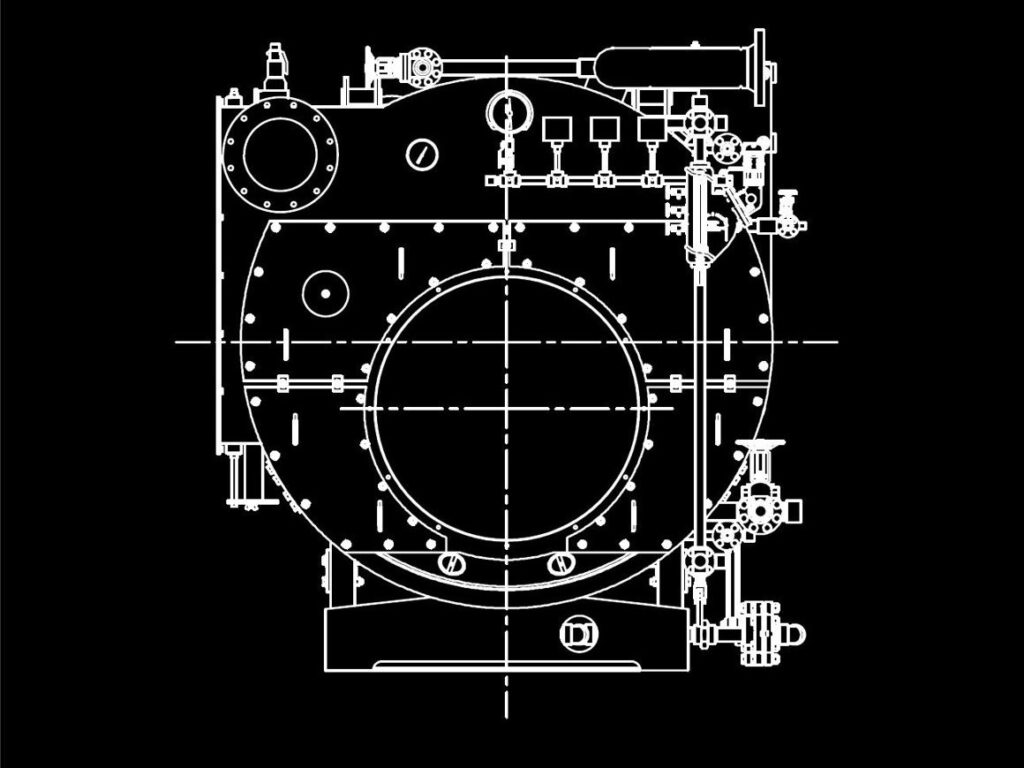
Enhancing Efficiency and Reducing Emissions: The Role of Burners in Industrial Boiler Applications
Burners play a pivotal role in optimizing the efficiency and emissions performance of industrial boilers. As the core component responsible for initiating and controlling the combustion process, burners have a direct impact on the overall energy efficiency, operational costs, and environmental footprint of industrial boiler systems.
Efficiency Optimization through Advanced Burner Design
Efficient burner design is critical for industrial boilers, as it directly influences the combustion process and heat transfer within the system. Modern burner technologies are designed to maximize combustion efficiency by achieving the ideal fuel-air ratio, ensuring complete fuel combustion and minimal energy waste. Precise control over the fuel-air mixture allows for optimal heat transfer, resulting in improved boiler efficiency and reduced fuel consumption.
- Combustion Efficiency: Advanced burner design focuses on achieving high combustion efficiency, which is the ratio of the heat produced during combustion to the heat that could theoretically be produced if all the fuel were burned completely. Modern burners are engineered to precisely control the fuel-air mixture, ensuring that the ideal stoichiometric ratio is maintained. This means that the exact amount of air required for complete combustion is supplied, minimizing unburned fuel and reducing waste. As a result, combustion efficiency is maximized, leading to greater heat output per unit of fuel consumed.
- Turbulence and Mixing: Efficient burners are designed to create turbulence and promote thorough mixing of fuel and air. This turbulence enhances combustion by increasing the contact between fuel and oxygen, facilitating rapid ignition and reducing the formation of harmful byproducts like carbon monoxide (CO) and unburned hydrocarbons. The design may incorporate features such as swirlers, baffles, or specially shaped nozzles to achieve optimal mixing and combustion stability.
- Flame Stability: Advanced burner design also focuses on maintaining flame stability throughout a wide range of operating conditions. This is essential for industrial boilers that may experience variations in load or fuel quality. Modern burners incorporate features like flame scanners and advanced control systems to monitor and adjust the flame in real-time. This ensures that the combustion process remains stable and efficient, even during transient conditions.
- Reduced Emissions: Efficient burner design not only enhances combustion efficiency but also plays a crucial role in reducing emissions. By achieving complete combustion and minimizing the formation of pollutants, such as nitrogen oxides (NOx), sulfur dioxide (SO2), and particulate matter, advanced burners help industrial facilities comply with environmental regulations and reduce their environmental footprint. They achieve this through technologies like staged combustion, lean burn designs, and low-NOx combustion techniques.
- Heat Transfer Optimization: Another key aspect of advanced burner design is optimizing heat transfer within the boiler system. This involves ensuring that the heat generated during combustion is effectively transferred to the working fluid (typically water or steam) in the boiler. Modern burners may feature specially designed flame patterns, combustion chambers, and heat exchangers to maximize heat transfer efficiency. Efficient heat transfer not only improves boiler efficiency but also reduces the energy required to achieve the desired steam or hot water output.
- Variable-Frequency Drive (VFD) Integration: Some advanced burners are equipped with Variable-Frequency Drives (VFDs) that allow for precise control of the combustion process based on load demand. VFDs can modulate the burner’s output to match the changing heat requirements of the industrial process, ensuring that the boiler operates at its most efficient point across varying loads. This feature not only enhances efficiency but also reduces energy waste during periods of lower demand.
- Computational Modeling and Simulation: Advanced burner design often involves computational modeling and simulation techniques to optimize burner performance before physical prototypes are built. Computational fluid dynamics (CFD) simulations can provide insights into the burner’s behavior under different conditions, allowing engineers to fine-tune design parameters for maximum efficiency and emissions control.
The efficiency optimization achieved through advanced burner design is essential for industrial boilers, as it directly impacts combustion efficiency, emissions reduction, and heat transfer efficiency. Modern burners are meticulously engineered to maintain precise control over the combustion process, ensuring complete fuel combustion, minimal energy waste, and compliance with environmental standards. These innovations not only improve boiler performance but also contribute to the overall sustainability and competitiveness of industrial operations.
Industrial Applications and Burner Efficiency
In industrial applications, where boilers operate under demanding conditions, burner efficiency is of paramount importance. Industrial boilers are subject to high heat loads, varying operating pressures, and diverse fuel sources. Efficient burners are engineered to handle these challenges, maintaining stable combustion and heat generation across a wide range of operating conditions. By providing consistent heat output and optimal combustion performance, these burners contribute to overall system efficiency and productivity.
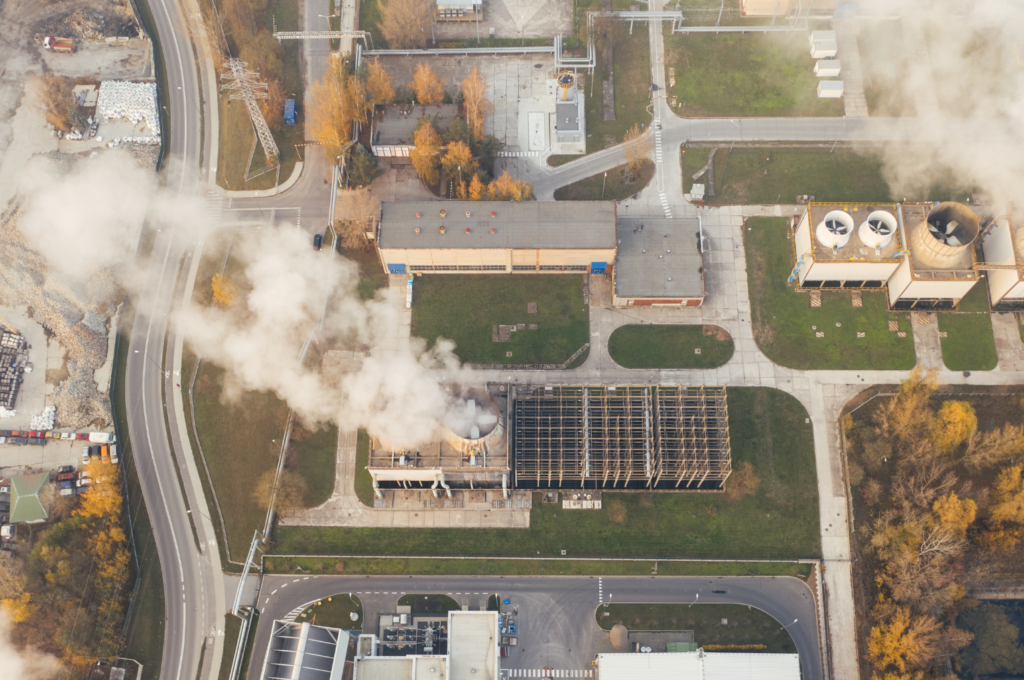
Emissions Control and Low-NOx Burners
Industrial boilers are significant contributors to air pollution due to the release of nitrogen oxides (NOx) during the combustion process. With increasing environmental regulations and a focus on sustainability, emissions control has become a critical consideration. Low-NOx burners have emerged as a solution to mitigate NOx emissions in industrial boiler applications. These advanced burners utilize innovative combustion techniques, such as staged combustion and flue gas recirculation, to reduce the formation of NOx while maintaining efficient combustion and heat transfer. Here’s why emissions control and low-NOx burners in industrial boiler applications are important:
- NOx Emissions and Environmental Impact: Nitrogen oxides (NOx), including nitric oxide (NO) and nitrogen dioxide (NO2), are harmful pollutants produced during the combustion of fossil fuels in industrial boilers. These emissions have adverse environmental and health effects, contributing to smog formation, acid rain, and respiratory problems. As a result, regulatory agencies worldwide have implemented stringent emission standards to limit the release of NOx from industrial sources, including boilers.
- The Role of Low-NOx Burners: Low-NOx burners are specially designed to address the challenge of reducing NOx emissions from industrial boilers. They employ advanced combustion techniques and technologies to lower the formation of NOx compounds while maintaining efficient combustion and heat transfer within the boiler system.
- Staged Combustion: One of the primary strategies employed by low-NOx burners is staged combustion. This involves dividing the combustion process into two or more stages. In the initial stage, fuel is burned in a fuel-rich environment with limited air supply, which reduces the formation of NOx. In the subsequent stages, additional air is introduced to complete combustion and ensure efficient heat transfer. This staged approach minimizes peak combustion temperatures, which is a key factor in NOx formation.
- Flue Gas Recirculation (FGR): Another technique used in low-NOx burners is flue gas recirculation (FGR). In FGR systems, a portion of the exhaust gases (flue gas) is recirculated back into the combustion process. This serves several purposes, including diluting the oxygen concentration in the combustion zone, reducing flame temperature, and limiting the formation of NOx. FGR is particularly effective in reducing NOx emissions from boilers while maintaining combustion stability.
- Air-Fuel Ratio Control: Low-NOx burners often feature advanced control systems that precisely regulate the air-fuel ratio throughout the combustion process. Maintaining a leaner mixture of fuel and air can significantly reduce the formation of NOx. These control systems continuously monitor conditions such as oxygen levels, temperature, and combustion stability to ensure optimal combustion efficiency while minimizing NOx emissions.
- Selective Catalytic Reduction (SCR): In some cases, low-NOx burners may be combined with selective catalytic reduction (SCR) systems. SCR utilizes a catalyst to convert NOx emissions into harmless nitrogen and water vapor. This secondary emission control method is highly effective in further reducing NOx levels and ensuring compliance with stringent emissions standards.
- Compliance with Regulations: Low-NOx burners play a crucial role in helping industrial facilities meet and exceed emissions regulations. By reducing NOx emissions, businesses can avoid costly penalties and demonstrate their commitment to environmental responsibility. This can also enhance their reputation and appeal to environmentally conscious consumers and partners.
- Energy Efficiency and Cost Savings: It’s worth noting that while the primary goal of low-NOx burners is emissions reduction, they can also contribute to energy efficiency improvements. By optimizing combustion and heat transfer, these burners may lead to reduced fuel consumption, lowering operational costs in the long run.
Low-NOx burners are indispensable tools for industrial boiler applications seeking to reduce NOx emissions and comply with environmental regulations. These burners employ a combination of innovative combustion techniques, staged combustion, flue gas recirculation, and precise control systems to minimize NOx formation while maintaining efficient boiler performance. As sustainability and emissions control continue to be paramount concerns, low-NOx burners are becoming increasingly essential in the industrial sector.
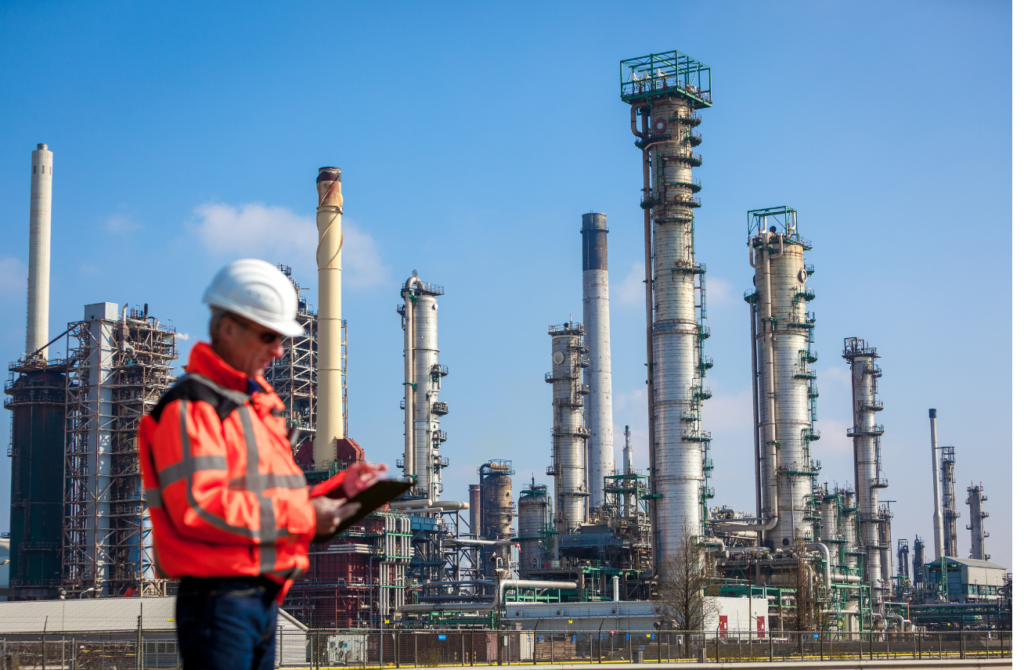
Versatile Applications of Burners in Industrial Boilers
Burners find application in a wide range of industrial sectors and boiler configurations. Some common industrial applications include:
- Power Generation: Power plants heavily rely on industrial boilers equipped with high-efficiency burners to generate steam for electricity production. Efficient combustion ensures maximum heat transfer and power output while minimizing fuel consumption and emissions.
- Chemical Industry: Industrial boilers with efficient burners are used in the chemical industry for processes such as reactor heating, distillation, and solvent recovery. Precise control over combustion parameters enables optimal energy utilization and cost savings.
- Oil and Gas: Burners are integral to oil and gas production facilities, providing heat for processes like oil refining, gas processing, and steam generation. Efficient burner design enhances operational efficiency, reduces fuel waste, and lowers environmental impact.
- Food and Beverage Processing: Boilers equipped with efficient burners are widely employed in food and beverage processing, where heat is required for cooking, pasteurization, and sterilization. These burners ensure precise temperature control, enhancing product quality while minimizing energy consumption.
Efficient burners tailored to specific industrial applications empower businesses to optimize their energy usage, reduce operational costs, and meet increasingly stringent environmental regulations. As technology advances, the continuous development of burners aims to further enhance efficiency and emissions control in industrial boiler systems, driving us towards a more sustainable and energy-efficient future.
Boiler Burners
Boiler burners play an integral role in various industrial applications, contributing to heat and power generation in sectors such as manufacturing plants, power stations, and residential heating systems. They ensure successful combustion processes by regulating fuel-air mixtures, hence maximizing efficiency and minimizing emissions. The efficiency of a boiler is measured by its fuel energy conversion rate; innovative burner technology aids in enhancing this efficiency, resulting in reduced fuel consumption and operational costs.
Boiler burners are not only essential in fixed locations but also in mobile applications such as construction sites, remote locations, and disaster recovery, offering prompt and portable heating solutions. Amidst heightened environmental consciousness and stricter regulations, the development of low-emission burner technologies has been prioritized. Low-NOx and ultra-low-NOx burners, along with technologies like flue gas recirculation, selective catalytic reduction, and exhaust gas scrubbers, are some of the advancements that mitigate harmful emissions.
Boiler burners are crucial in optimizing boiler efficiency and mitigating environmental impact, resulting in operational cost savings and lower fuel consumption. The progress of burner technology is in line with the growing preference for sustainability, with continuous advancements making boilers increasingly eco-friendly. Hence, the evolution of boiler burners significantly influences the efficiency and environmental performance of heat and power generation systems.
